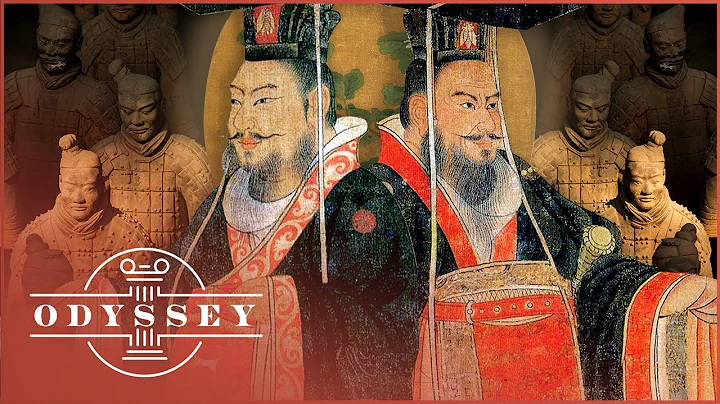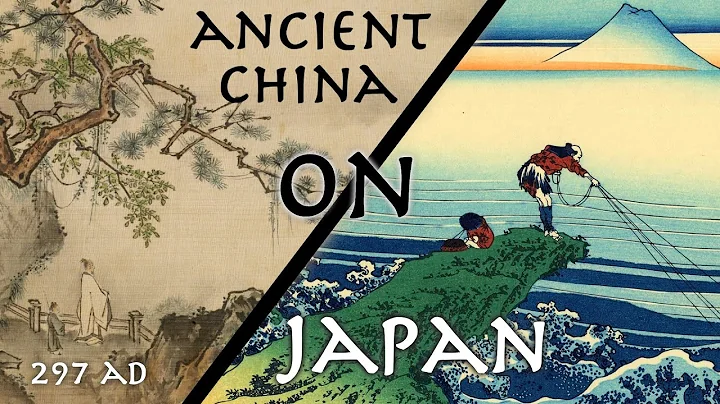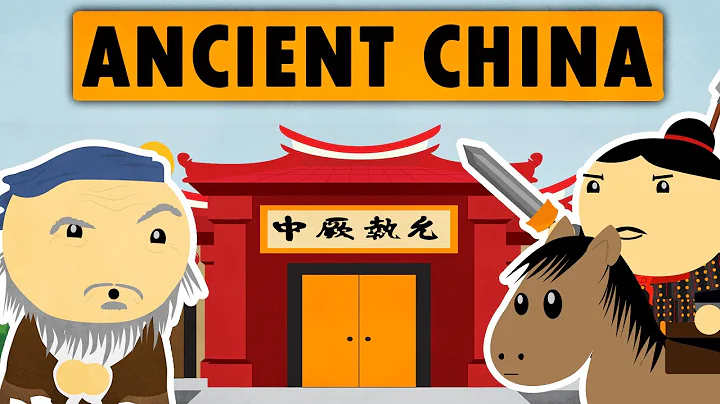Taste of Food Praises the Integrity

Throughout the ancient Chinese officialdom, upright and honest officials were among the filthy and filthy. They regarded not being greedy as a treasure, not taking recklessly as a virtue, keeping themselves clean, upholding justice and keeping integrity, and igniting bright colors in the dim officialdom. For this reason, people often express their admiration for their thrifty virtues in the form of elegant names for their food.
Sheep continues: Hanging fish Taishou
" The Book of the Later Han Dynasty " contains a story of " Sheep continues Hanging fish". In the Eastern Han Dynasty, there was a man named Yangxu who served as the prefect of Lujiang and was fond of eating fish.
In March of this year, Jiao Jian, the prime minister of the subordinate government, sent Yangxu a fresh big carp. Yang Xu repeatedly refused, so he hung the fish in the courtyard to show his intention of refusing the gift. Over time, the fish becomes dried in the sun.
The grass is green again in spring, and Jiao Jian brings a bigger carp. Without saying a word, Yang Xu pointed at the dead fish hanging in the courtyard, and Jiao Jian knowingly took the live fish back in his hand.
Since then, Yangxu has been nicknamed "Xuanyu Prefect". The good names recorded in historical books such as "Xuanyu", "Yangxuxhangyu", "Yangxuxhangku" and "Guafu Chengyu" are all derived from this allusion.
Politician in the early Ming Dynasty Yu Qian recited a poem and praised it: "There are no guests in the Ximen Courtyard, and there are hanging fish in the excellent kitchen. I lie down by the south window with the breeze blowing, and read a few volumes on the bedside."
Su Qiong: Xuangua Prefect
" Northern Qi Shu " records that Su Qiong served as the prefect of Northern Qi Nan Qinghe County for six years. He was a clean and honest official, and he never received gifts.
There was an old man named Zhao Ying in the county who once served as the prefect of Leling. When he was eighty years old, he retired and returned to his hometown. The old man admired Su Qiong's talent and character very much. One day in early May, he sent a fresh melon that had just been picked at his home to Su's house and insisted that Su Qiong accept it.
Such an old man came a long way with a melon, not to mention that he was once an official of the imperial court. Su Qiong couldn't bear to let down the old man's wishes, so she had to keep the melon, but instead of eating it, she ordered someone to hang it on the beam in the lobby. above as a warning.
The family complained that Su Qiong was too rigid in doing things. He was just a melon and not worth a few cents. He just didn't accept it next time.
Su Qiong responded sternly: "Tell me, is there anything in the world that you are willing to do for the first time and then stop doing?"
Flies don't bite seamless eggs. It is crucial to stay true to our original aspiration and stick to our bottom line.
Su Qiong The "hanging melon effect" is really effective. At first, when the villagers heard that the prefect had accepted old man Zhao Ying's melons, to show their respect, they all brought their own fresh melons and fruits to the Su family to taste. When they saw the dry melons in the hall, they looked at each other, and there was no one else. Gift given.
Fu Zhao: The Governor of Burian Tang
" Liang Shu " records that Fu Zhao, the Governor of Liang in the Southern Dynasties Linhai, engaged in politics quietly, never asking for entrustments, visits, or recruiting disciples, and kept books as friends all year round.
One day, his daughter-in-law made beef soup for him to eat. Fu Zhao couldn't rebuke his daughter-in-law, so he called his son to him and said to him: "It is illegal to eat beef given by others. I can't go to the Yamen to report your wife, so I'd better bury this beef soup!"
As a result, Fu Zhao was nicknamed "The Sovereign Administrator".
is no different. More than 700 years later, in the Ming Dynasty, there was also a "Tang-Burying Administrator". The difference was that the former buried the soup to maintain his reputation, while the latter buried the soup to remember the way he came.
Wang Jing was appointed as the prefect of Ningbo, Zhejiang Province in the late Ming DynastyHongwu. According to his position and salary at that time, he could eat in the public dining room, with fish and meat, and the food quality was quite good.
But Wang Jing still insists on living frugally and eating only three meals a day. One day, his wife specially made a bowl of fish soup to nourish his body. Wang Jing did not eat, but said to his wife: "Have you forgotten when I ate grass roots?" Then he asked his wife to bury the fish soup.
Wang Jing used this approach to remind herself that being an official should not be extravagant. After the news came out, everyone who heard it was in awe and called him "the governor who buried the soup".
Qing Dynasty poet Qian Qianyi once praised: "The soup made by the governor is as clear as water, soup cakes can feed thousands of families."
Yu Gaozhi: Leek Gong Cao
" Nan Qi Shu " records that although Yu Gaozhi was born into a family of officials, he had been upright since he was a child, had a gentle demeanor, and had an extraordinary temperament. Later, he was appointed as the meritorious officer of Zhenglu Mansion.
Despite Yu Gao's high position and high authority, he still lived a very poor life because he did not have extravagant expenses. Usually, I only eat pickled leeks, fried leeks, raw leeks mixed with mixed vegetables, etc. Friends who were familiar with him knew about this eating habit and made fun of him.
Situ Youchangshi Ren Fang spoke the most amusingly. He teased in his literary tone: "Who said Yu Lang was poor? Look at the thirty-nine and twenty-seven kinds of dishes he eats every day."
"Three-nine "It's homophonic to "three leeks (three kinds of leeks)", doesn't the multiplication of three and nine equal 27?
Yu Gaozhi knew that his friends were teasing him, so he laughed it off, but he still went his own way with regard to his eating habits.
Zhang Yi: Cai Geng Zhang
Zhang Wei was the librarian in charge of national history in the Song Dynasty. Song Taizong called him "Cai Geng Zhang" for a reason.
"Chronicles of Song Dynasty Poetry" records that Zhang Yi's official salary was not enough, but his family had guests coming and going like a revolving door all year round. Even the emperor found it strange. He couldn't help but ask Zhang that day. Bai: "How come there are so many diners in your family?"
Zhang Bai told them without hesitation that they were all poor relatives from the countryside who came to the city to make a living. My family didn't have anyone to entertain, so we just cooked some vegetables from the garden. Soup satisfies their hunger.
The next day, Taizong sent people to Zhang Mansion to spy on him, and it was as expected. Taizong finally believed that Zhang Bai was telling the truth, so he got the nickname at the beginning.
Fuqian: Fuqingcai
Fuqian is homophonic with "going to a banquet". Relatives and friends often use it to joke about how many feasts he has attended in his life and how much oil and water he has in his belly. Fuqian does not give any explanation and just smiles bitterly. .
During the Wanli years of the Ming Dynasty, Fu Yu served as the prefect of Changzhou . Jiajing In the twenty-fourth year of Jiajing , Changzhou suffered from drought and locust plague .
Every time Fuqi went to the countryside to inspect the disaster, he always asked his entourage to carry two baskets, one basket containing several liters of white rice and one basket containing several bundles of dry firewood, and they would dig the ground for cooking stoves everywhere, in order not to cause trouble to the people. His father, who was an official, once told him: "The most important thing in governing is to bring peace to the people; the most important thing is to bring peace to the people, and do not disturb the people." That's what he did.
Fuyu eats green vegetables all year round, and is not supplied by the people at all. Over time, the nickname "Fuqingcai" is known to women and children.
He is an upright person who "sees the desolation of the common people, is angry and right-wing, and offends moral customs." He has the heroic spirit of "yelling when he sees injustice on the road, and taking action when it is time to take action."
Once, Fu Yan took a grain ship to the disaster area. When he saw the ship owner eating large pieces of meat and drinking from large bowls, he asked why he was eating and drinking so much? The captain replied viciously: "You have nothing to do with it!"
Fu Yan asked sharply: "Did you secretly exchange the royal grain for wine and meat?" The captain was speechless for a moment. Fu Yan was ordered to accompany him and beat him until the captain fell to the ground and begged for mercy, swearing "I will never do this again."
Hu Shou'an: Caizhi County
In the Ming Dynasty, Hu Shou'an served as magistrate of Xinyang, Xinchang, Xinfan and other counties in Henan. Be prudent and self-sufficient, and do not indulge in extravagance. He once wrote a poem to express his ambition: "When an official arrives, he will live up to the sky and the people after several springs. The spirit of the gods should know you, and you will still be poor when you come."
In order to save money at home, he took the time to reclaim the open space in the backyard of the Yamen into a vegetable garden and grow various vegetables. On the one hand, it is used for home consumption, and on the other hand, it is used to entertain guests.
Hu Shou'an grows the most gourd , thinking that it can be eaten as a vegetable or given as a gift to others. Because he grows, cooks and eats vegetables all year round, his subordinates and local people are accustomed to calling him "the county magistrate of vegetables".
Ding Jun: Tofu Censor
People in the Ming Dynasty regarded tofu as a symbol of innocence and incorruptibility.
Ding Jun held the post of censor in Yongle, and exercised the power of picketing separately. He went on an inspection tour in Fujian. He was not afraid of the powerful and upright. He only had one tofu dish every time he ate. People affectionately called him the "Tofu Censor".
Ding Jun also brought the clean family tradition into the Ding family and carried it forward.
His younger brother was Ding Zhuo, the county magistrate of Tu County. He had a "famous reputation for integrity". When he left office, he was given a poem: "An honest person cannot be slandered by rhinoceros beads, but a heart of stone is hard to be polished by all changes." Compare him with the famous ancient minister Ma Yuan .
When his nephew Ding Lu was the head of the Ministry of Industry in the imperial court, all the officials worshiped him when they saw the power of eunuchs, but he was the only one who refused to kneel to the eunuchs. History books praised him for his "majestic style, and he did not dare to commit eunuchship."
Zhou Xin: Xuange Press Agency
During the Yongle period of the Ming Dynasty, Zhou Xin, the Inspector of Zhejiang Province, was an upright and upright official who enforced the law like a mountain. He was known as the "cold-faced and cold-iron" censor.
One day, a friend came to visit. He brought a roast goose with him and said to him: "Master Zhou has accomplished the task of inspecting and entrusting . You can't come empty-handed, right? I also heard that the master is honest and upright, so he also I don’t dare to give you anything, so don’t shirk it anymore, Mr. Roast Goose.” After saying that, he rode away.
Zhou Xin thought that Yang Xu, the governor of Lujiang in the Eastern Han Dynasty, hung fish on the beam in order to stop giving gifts. He wanted to be the second governor of the sheep and asked his family to hang the roast goose behind the house.
The family members asked in confusion, why is such a delicious roast goose hanging behind the house? It would be a shame not to eat it! Zhou Xin coldly said, "You don't need to say much, I have my own magic tricks." A few days later, several more friends came to visit, bringing various gifts. Zhou Xin laughed and greeted the guests. He did not lead the guests into the house, but led them to the back of the house. Pointing to the dried and dusty roast goose, he said, "Everyone, please see that someone sent the guests to the house a few days ago." I haven’t had time to eat the roast goose that came!”
The visitor had no choice but to take the gift and leave in anger. From then on, no one came to give a gift and brought trouble to himself.
Tang Bin: Three Tang Daotai
Qing Dynasty During the Kangxi period, Tang Bin served as Tongguan Daotai in northern Shaanxi. He has been an official for many years. He is honest and self-disciplined and has outstanding political achievements, but his life is very poor. He usually prepares wild vegetables for meals, and every meal must have tofu. Some people jokingly call him " tofu soup".
One day, Yang Bin checked the dining ledger and saw that it recorded the cost of buying two chickens on a certain day. He was shocked and hurriedly asked the clerk in charge of food to inquire. The clerk told him that it was your son who wanted to eat.
Tang Bin was furious. He called his son to reprimand him and made him kneel down to read "Zhu Xi Jiayu". He also severely reprimanded the clerk who was in charge of the accounts.
Tang Bin's administration was pure and the people lived and worked in peace and contentment, so there was a saying that "innocent administration is like tofu soup, simplicity in life is like coptis soup, and people's hearts are like ginseng soup". The nickname "Three Tang Daotai" has been widely spread. .
When Tang Bin left office, a local scholar wrote a couplet as a gift: "The breeze on the sleeves makes the people love and pity the authorities; the whole body is upright, and the three soups are worthy of those who come after you."
Yu Chenglong: Banya County Magistrate
During the Kangxi period of the Qing Dynasty, when Yu Chenglong was appointed as the magistrate of Luocheng County, Guangxi, he was cautious in serving the public and refused to accept any courtesy. In his words, "I am rich and cannot moisturize myself."
Yu Chenglong is content with living in poverty. His son comes to visit him from his hometown. He only has one salted duck . So he cut half of it and gave it to his son to use as dry food and vegetables on the road, so the people respectfully called him "Half Duck County Magistrate".
Later generations wrote a poem praising: "The county magistrate has been exceptional since ancient times, and his integrity in government is unparalleled in the world. If all officials were like this, the people would be happy."
Jackie Chan died of illness at the age of 68. His personal belongings were only "a silk robe and several cans of salted black beans". The people "went to the market and gathered to weep, and every family painted portraits and offered sacrifices." Known in history as "the most honest official in the world".
Various food taste names contain both reverence and love; they both praise and inspire. Honest officials with honorable titles behave upright, look up to the sky and bow to the ground, and they are a mirror for those in power.





















![Full Version | My boss has a secret crush on me! | [I Want to Resign Every Single Day] - DayDayNews](https://i.ytimg.com/vi/AHnnEDTNmVo/hq720.jpg?sqp=-oaymwEcCNAFEJQDSFXyq4qpAw4IARUAAIhCGAFwAcABBg==&rs=AOn4CLDUXyOOmkF1caNjZqZCzP1CvWIX9Q)